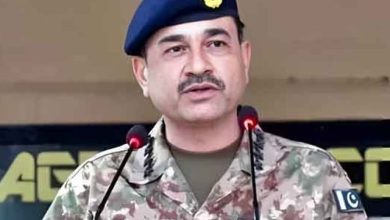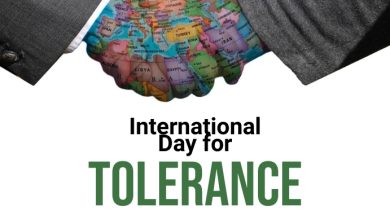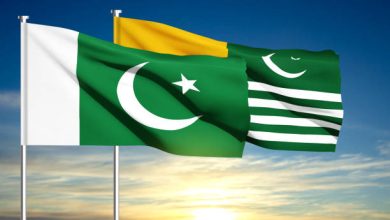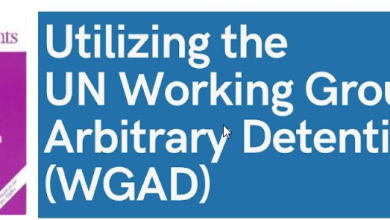 November 6 is a day of deep reflection and remembrance in Jammu, marking a tragic chapter in history that few outside the region fully understand or acknowledge. This date recalls the 1947 massacre in which over 250,000 Muslims lost their lives, one of the most horrific yet lesser-known genocides in South Asia, occurring in the wake of British India’s partition. It was an era when nations were newly attuned to the importance of human rights, having pledged to prevent atrocities following World War II, yet Jammu’s tragedy received little international attention. Today, survivors and the families of those lost carry the memory of that day, still yearning for recognition and justice.
November 6 is a day of deep reflection and remembrance in Jammu, marking a tragic chapter in history that few outside the region fully understand or acknowledge. This date recalls the 1947 massacre in which over 250,000 Muslims lost their lives, one of the most horrific yet lesser-known genocides in South Asia, occurring in the wake of British India’s partition. It was an era when nations were newly attuned to the importance of human rights, having pledged to prevent atrocities following World War II, yet Jammu’s tragedy received little international attention. Today, survivors and the families of those lost carry the memory of that day, still yearning for recognition and justice.
The Jammu Massacre shares painful parallels with the Holocaust’s systematic targeting and elimination of groups based on ethnicity or religion. During WWII, the world witnessed the horrors of concentration camps and ethnic cleansings, vowing “never again” once the extent of Nazi atrocities was revealed. However, the resolve to prevent such tragedies did not reach Jammu. In 1947, British rule in India was coming to an end, and as India and Pakistan emerged as separate nations, unresolved issues over the status of princely states like Jammu and Kashmir brought new tensions to the region. With a majority-Muslim population, the people of Jammu and Kashmir hoped to join Pakistan. However, the Hindu ruler of the region, Maharaja Hari Singh, controversially acceded to India, a decision that disregarded the wishes of his people and ignited widespread unrest. The Maharaja’s forces, rather than addressing this peacefully, responded with unrestrained violence, targeting the Muslim population.
The massacre unfolded in a charged atmosphere of religious and political hostility. Muslim government employees were dismissed, and local police forces often stood by or participated in attacks against Muslim civilians. Many families attempted to flee to Pakistan, only to be intercepted by Maharaja’s forces or extremist groups such as the RSS, who were determined to eliminate or drive out Muslims. Muslims who sought refuge at police stations were often handed over to hostile forces instead of being protected. As reported by The Times of London, “237,000 Muslims were systematically exterminated, unless they escaped to Pakistan along the border, by the forces of the Dogra State headed by the Maharaja in person and aided by Hindus and Sikhs.” This systematic violence altered the demographic structure of Jammu, reducing its Muslim population, with lasting impacts still felt today.
Despite its scale, the massacre in Jammu remains a largely forgotten episode in the broader historical narrative of the partition, and international awareness of it remains minimal. Even as Pakistan raised the issue on global platforms, little concrete action was taken by the international community. Today, the people of Jammu and Kashmir face challenges that echo the unresolved past. Hindu nationalist movements have continued to gain ground, sometimes promoting policies that seem to marginalize the region’s Muslim population. In August 2019, the Indian government abrogated Articles 370 and 35A, stripping Jammu and Kashmir of its special autonomous status and integrating it further with India. For many, this policy shift signaled a troubling trend, reviving memories of previous conflicts and marginalizations that intensified the region’s tensions.
Addressing the Kashmir dispute requires a collaborative and sustained approach between India and Pakistan. Regional platforms like the Shanghai Cooperation Organization (SCO) and the South Asian Association for Regional Cooperation (SAARC) have the potential to offer neutral ground for dialogue, yet they have not yet facilitated significant breakthroughs.
The tragic events of November 1947 altered the demographics of Jammu and contributed to enduring mistrust between India and Pakistan. Estimates place the number of those killed in the tens or even hundreds of thousands, with nearly half a million displaced. This systematic displacement aimed to align the political demographics with India, leaving behind a fractured society. Today, Jammu’s Muslim population remains far smaller than before, an imbalance that continues to shape the region’s social and political dynamics. Furthermore, the forced migration from Jammu to Pakistan in 1947 not only created a refugee crisis but also intensified antagonism between the two nations, sowing seeds of a complex, unresolved territorial conflict.
The memory of the Jammu Massacre persists as a form of resistance, a call against erasure. For Jammu’s Muslims, the anniversary of this event serves as a reminder of the dangers of unchecked ethno-nationalism. To achieve stability, regional leaders must adopt a balanced historical narrative, one that includes the experiences and suffering of all communities and addresses the need for truth and reconciliation. This shared recognition could pave the way for diplomatic efforts guided by a commitment to historical accountability, human rights, and peaceful resolution.
Today, the Jammu Massacre stands as one of the most painful and under-recognized episodes in South Asia’s postcolonial history. As both India and Pakistan navigate their complex relationship, the weight of unresolved trauma continues to cast a shadow over any attempts at peaceful resolution. Honoring the memory of those lost, confronting historical truth, and committing to accountability are vital steps toward healing and envisioning a peaceful future for Jammu and Kashmir.
The Author is a research scholar at Department of mass communication, Allama Iqbal Open University Islamabad.








